Are you craving ice during your pregnancy? This is actually not an uncommon experience, and can be triggered for a few different reasons.
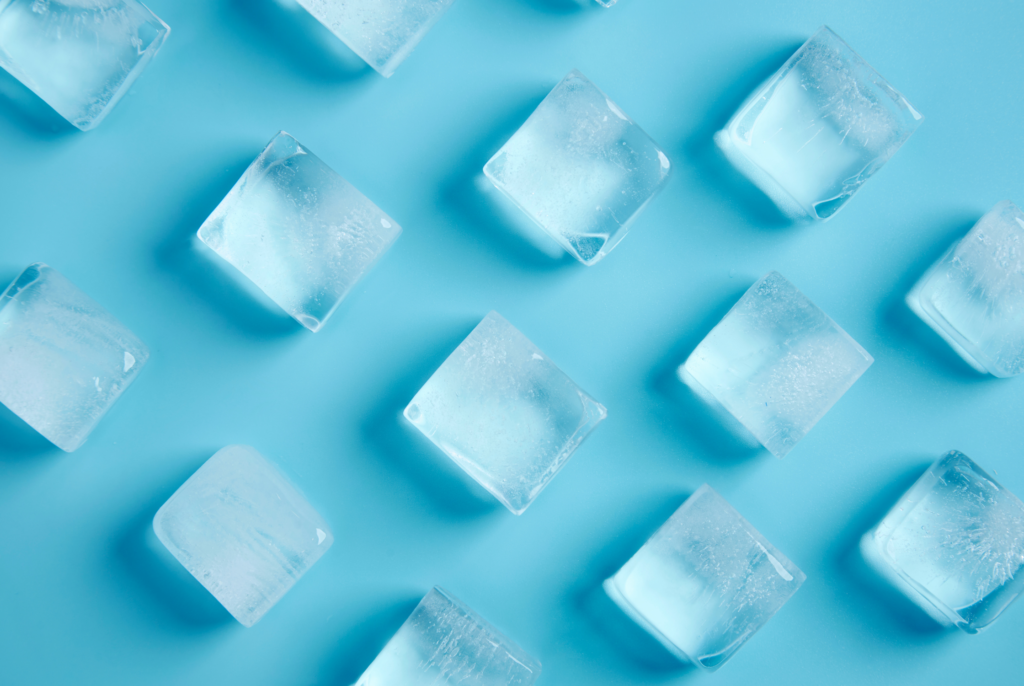
Pregnancy cravings for random foods or odd food combinations are very common (and often anticipated) by expectant moms. However craving non-food items like ice, is a slightly different story. You may be concerned that craving ice indicates a more serious underlying issue. While eating ice itself is relatively harmless (and actually may improve your hydration!), it is important to note that sometimes ice cravings can be more complicated than simply wanting to suck on something cold and refreshing. This is especially true if your ice craving becomes more intense, or lasts longer than a month.
As a family registered dietitian, I love to dig deep into the research and provide the most up-to-date information on prenatal and family nutrition. This blog will cover all your questions around craving ice, and what it could mean for your health and the health of your growing baby!
Need personalized nutrition support?
Book an appointment with one of our pediatric dietitians today!
First and foremost, what should I eat for a healthy pregnancy?
During pregnancy, it’s important to try and eat a variety of nutritious foods every day, with a meal or snack every 2-3 hours. Eating smaller portions often can help to regulate your energy level and reduce pregnancy-related nausea. However, the best thing you can do is tune into your hunger and fullness cues, rather than eating portions based on amounts you think you “should” eat.
There will be days where you are much hungrier than normal and days when your appetite is lower, and that is ok! If you find you are experiencing extreme nausea or food aversions, please do not hesitate to connect with a prenatal dietitian who can suggest individualized strategies to improve your nutrition during this difficult time.
If you are able to eat a variety of vegetables, fruit, whole grains, nuts/seeds, lean proteins, and satisfying fats, you are on the right track! Eating well during pregnancy isn’t always an easy endeavour, especially when you are experiencing odd cravings or food aversions. Pregnancy comes with a huge learning curve in almost every aspect of your life. If craving ice is one of your concerns, let’s continue to dig deeper!

What can cause ice cravings during pregnancy?
First, it’s important to point out if you occasionally crave ice or enjoy sucking on ice for its refreshing sensation, there is likely nothing to be concerned about (insert sigh of relief here).
However, if you experience ice cravings and eat large amounts of ice every day, for an extended period of time, you may be displacing important foods and nutrients with ice (and not eating enough for a healthy pregnancy), or even have something called Pica. Pica is defined as constantly eating non-nutritive, non-food items over a period of at least one month.
When someone has Pica, they may have to urge to consume other non-food items including (but not limited to) dirt, clay, baby powder, raw starches, charcoal, chalk, paper, feces, coffee grounds, soap, and eggshells. As you can imagine, eating some of these items could lead to stomach issues, nausea, vomiting, and in some cases, infection or poisoning. Craving a bit of ice may not seem so bad now, right? As mentioned before, eating ice will not cause any direct health issues, but may be a sign of a more serious underlying condition. It’s definitely something to bring up with your doctor if you feel you may have it!
Here are some common risk factors associated with developing Pica:
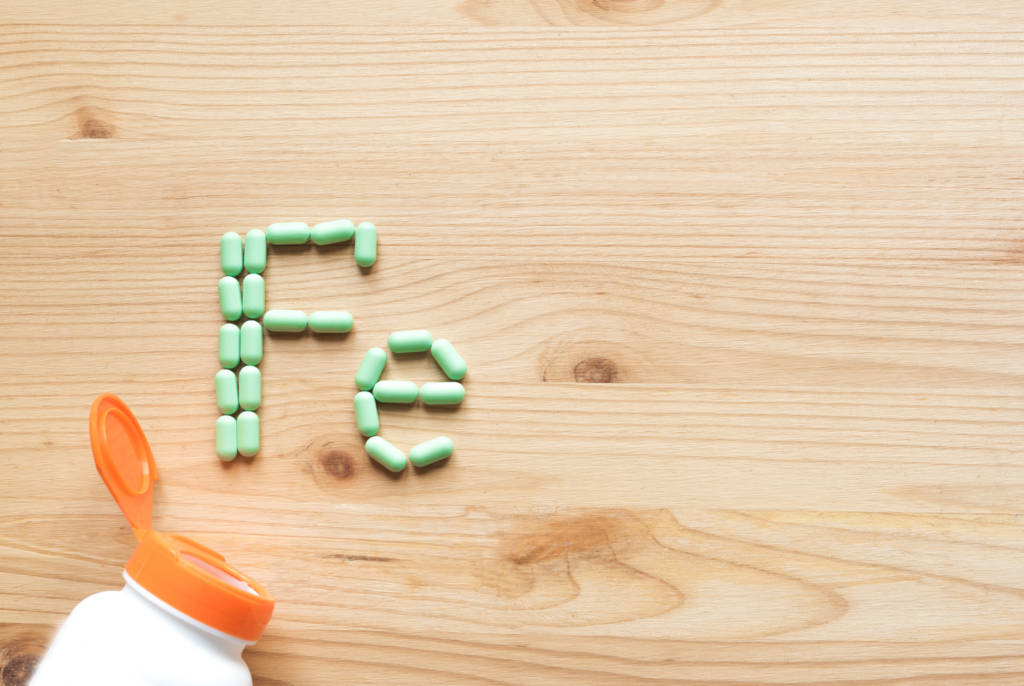
Nutrient deficiencies (such as iron deficiency)
Studies have shown that pica is associated with iron deficiency anemia and other micronutrient deficiencies (such as low zinc levels). While pica doesn’t necessarily cause nutrient deficiencies, having pica is a clear marker of risk for these conditions.
Craving ice in particular during pregnancy, has been associated with iron deficiency. Iron needs are much higher in pregnancy. Your system requires more iron to make more blood to deliver more oxygen to your growing baby! Severe iron deficiency anemia can result in a higher risk of preterm birth, low-birth weight, problems before/during delivery as well as postpartum depression. Read more here about iron deficiency in pregnancy (link here).
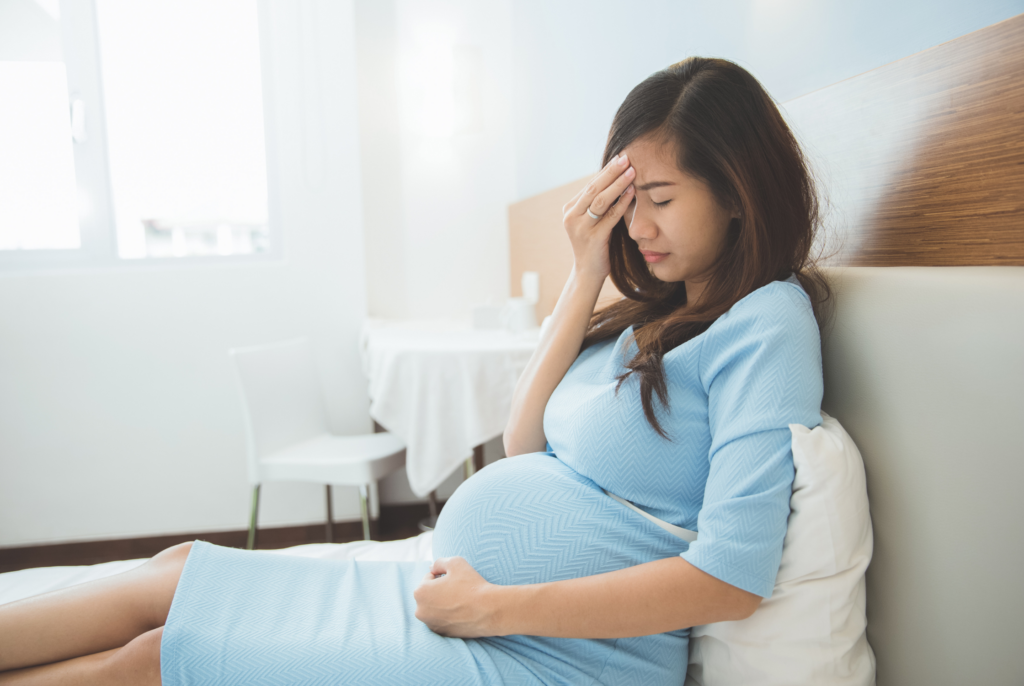
Stress or Anxiety
High amounts of stress and/or anxiety have been associated with chewing on ice. The act of crunching on ice may help distract or calm an anxious or stressed mind. Eating is often impacted by stress and anxiety, and this includes eating non-food items as well. The pregnancy journey comes with a lot of change physically, emotionally and mentally in a relatively short period of time. The stress around giving birth, or anxiety about your life forever changing after birth, can take a toll on your mental health. These feelings are normal, valid, and deserve attention.
Mental Health Conditions
Although this is a rarer risk factor, mental health conditions such as obsessive-compulsive disorder (OCD) have been associated with pica. Compulsions to complete certain behaviours or rituals help to relieve the building of anxieties when you have OCD. One compulsive behaviour could be eating non-food items such as ice. Interestingly enough, women who are pregnant or who have recently given birth, are at higher risk for developing symptoms of OCD. This is especially true if you have a history of OCD or symptoms of OCD in the past.
There are other mental health issues that can be linked to pica, but none are particularly more common during pregnancy.
For the reasons outlined above, it is important to contact your OBGYN if you are experiencing intense ice cravings. This way your doctor can assess what’s going on, and rule out any of the more serious conditions associated with craving ice (or other non-food items).
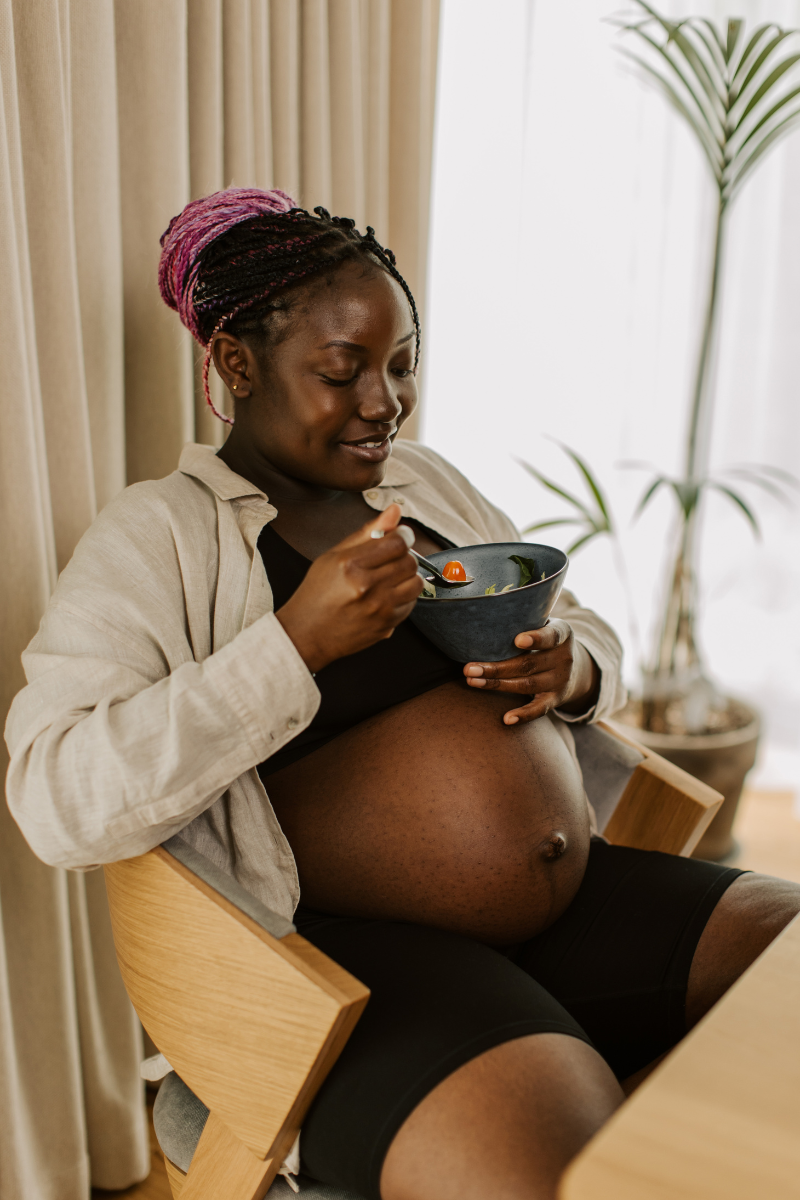
Can eating ice cause health problems?
For the most part, eating ice will not cause health problems. Ice is a relatively neutral substance that may even provide the health benefit of improving hydration during pregnancy! Fluid requirements rise as your body’s metabolism accelerates with growing a child and expanding your blood volume to support the developing babe. Eating ice could help you reach your fluid needs to keep you regular (pregnancy constipation is not fun), reduce swelling in your feet and ankles, regulate temperature and support overall health through your pregnancy journey!
Now, it’s important to remember that eating ice can be a sign of pica, which is linked to other more serious conditions like iron deficiency. Eating large amount of ice, frequently throughout the day has the potential to fill your stomach and create a sense of fullness. If this is the case, you may not be eating enough food to sustain healthy weight gain during pregnancy (also increasing risk of nutrient deficiencies), which can be harmful for both you and your baby. Crunching down on ice daily can also increase risk of dental issues, such as weakening the enamel on your teeth, leading to cavity formation.
Should I stop eating ice while pregnant?
If eating ice is one of your preferred ways to feel refreshed or cool you down (from those pregnancy hot flashes), I will not stop you! It comes down to your own intuition when you ask yourself, “Am I craving ice too much for my own comfort?” or “Do I eat ice in a compulsive way?”. If you are feeling some red flags around your ice cravings, it might be time to seek help. Your doctor can uncover if there is something more going on or suggest coping strategies to help you compassionately manage your ice cravings.
FAQ
Pica in pregnancy is actually much more common than you may think! The incidence of pica in pregnant women around the world has been estimated to be close to 30%! The highest rate of women reporting pica symptoms live in Africa. As we have learned, pica is more common where there is iron deficiency, and Africa has a high rate of iron deficiency as well.
Since the direct cause of pica is unknown, it is important that your doctor explores all possible conditions associated with this disorder before recommending treatment. In pregnancy the most common condition linked to pica is nutrient deficiency (most commonly iron deficiency). Luckily, this is easily treated with iron supplementation and dietary changes. However, in more severe cases, iron infusion (delivering iron dosage into your blood through an IV drip) may be ordered by your doctor to help improve iron levels faster than oral supplementation or dietary changes.
The good news is, there are things you can do to prevent iron deficiency during pregnancy, lowering your risk of developing pica by a lot! Eating food sources rich in iron may seem like an obvious solution, however since your body requires one and a half times more iron during pregnancy, it can be hard to get enough through food alone. This is why I always recommend pregnant women (and those trying to conceive)take a prenatal multivitamin and mineral supplement which contains more iron than a regular women’s multivitamin.
In most cases, pica during pregnancy resolves on its own. However, if you find your ice (or other non-food) cravings are not subsiding, you may need further support from a behavioral psychologist to work through some strategies around coping with your eating compulsion.
References:
- National Institutes of Health, National Library of Medicine, Pica, https://my.clevelandclinic.org/health/diseases/22944-pica.
- Miao D, Young SL, Golden CD. A meta-analysis of pica and micronutrient status. Am J Hum Biol. 2015 Jan-Feb;27(1):84-93. A meta-analysis of pica and micronutrient status – PubMed (nih.gov)
- Postpartum-OCD-Fact-Sheet.pdf (iocdf.org)
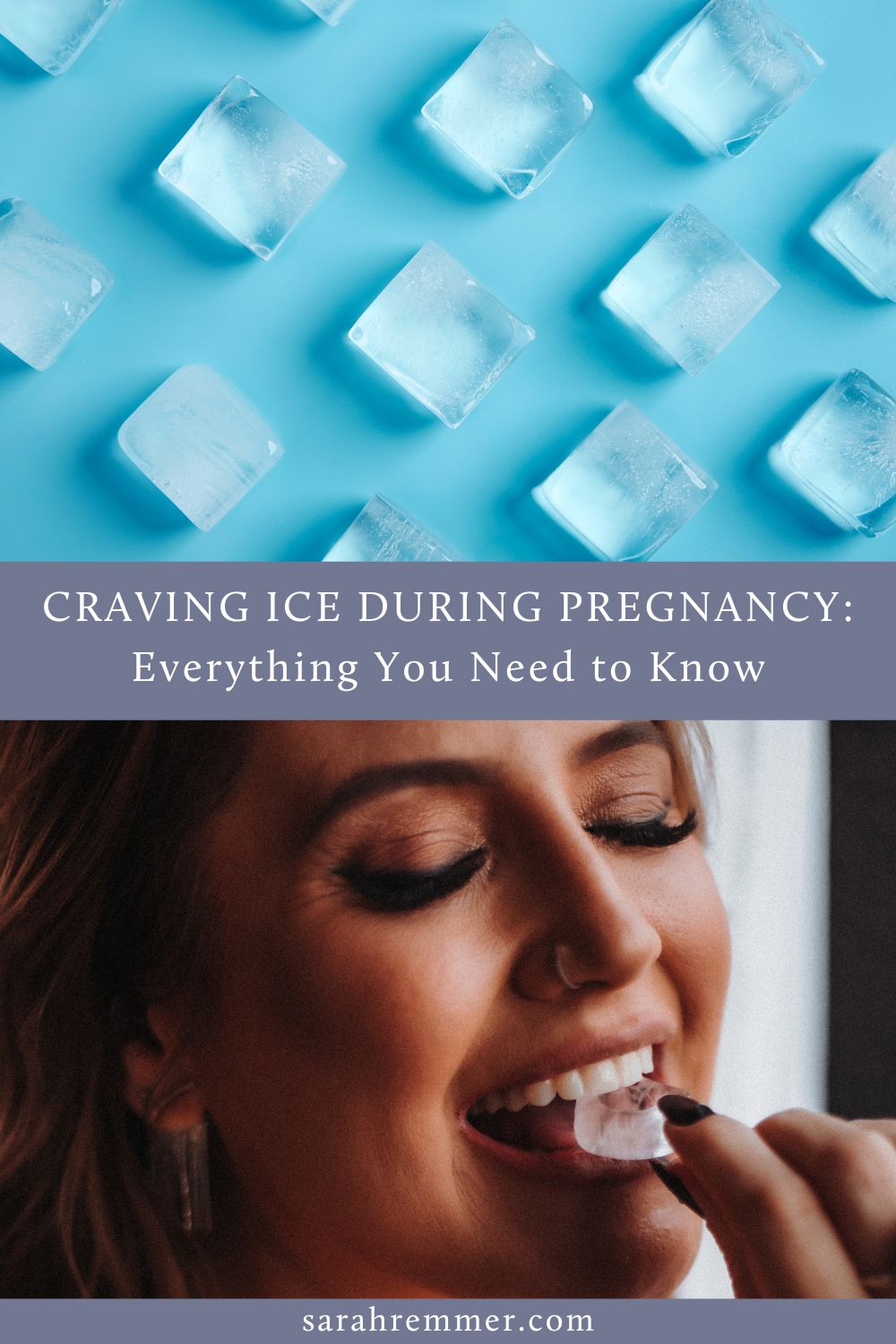
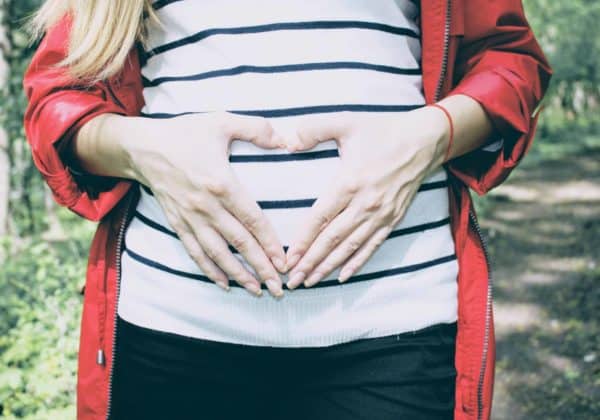

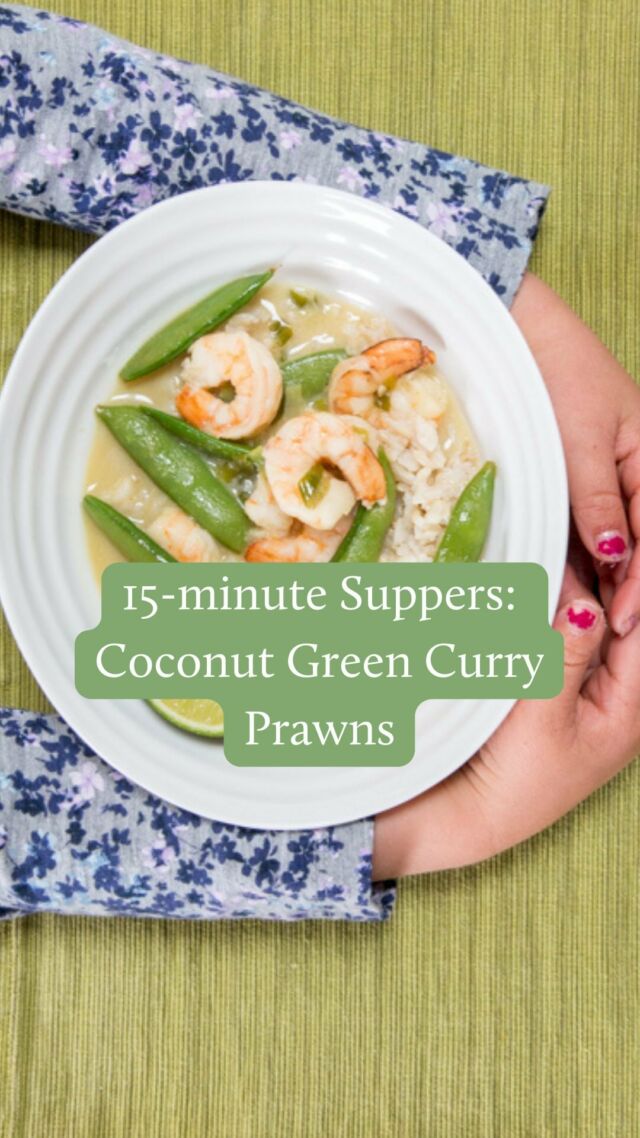

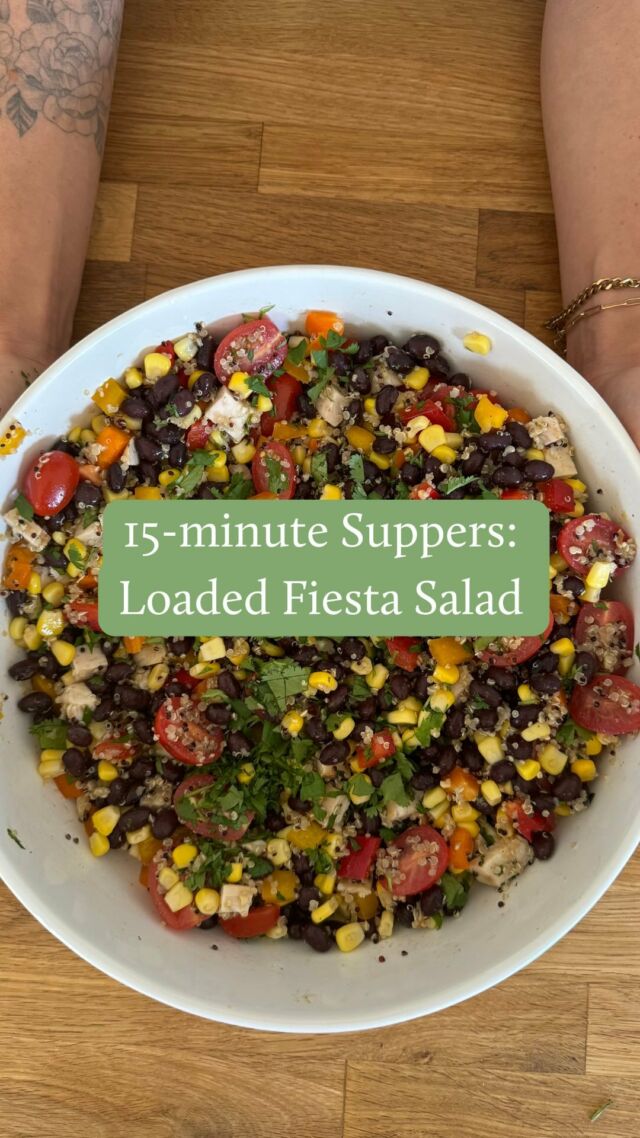


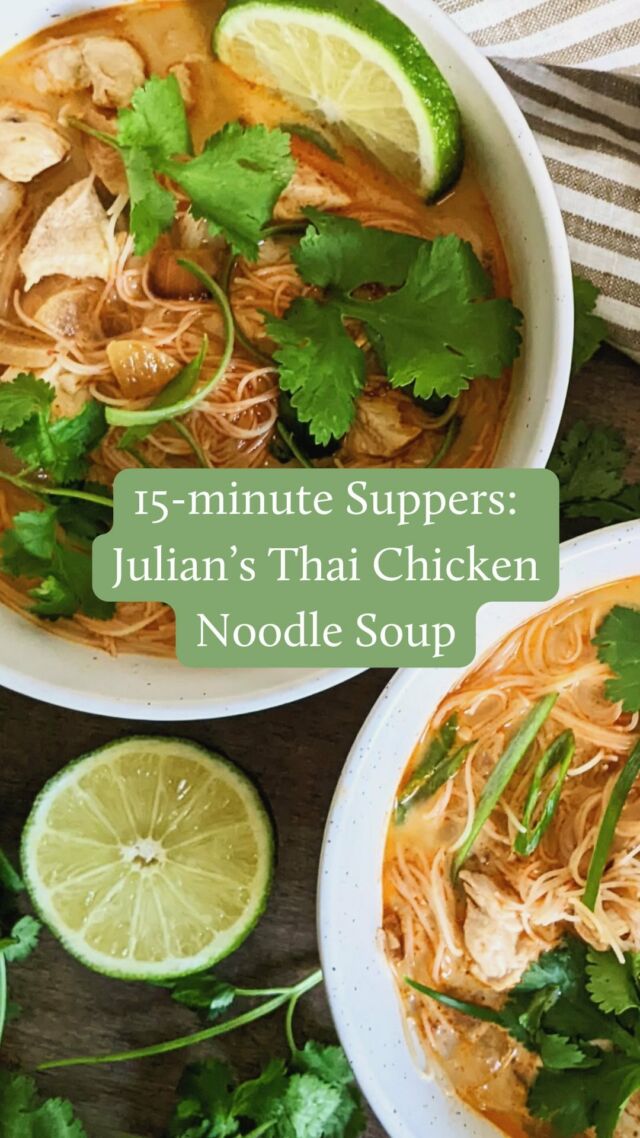
Leave a Comment